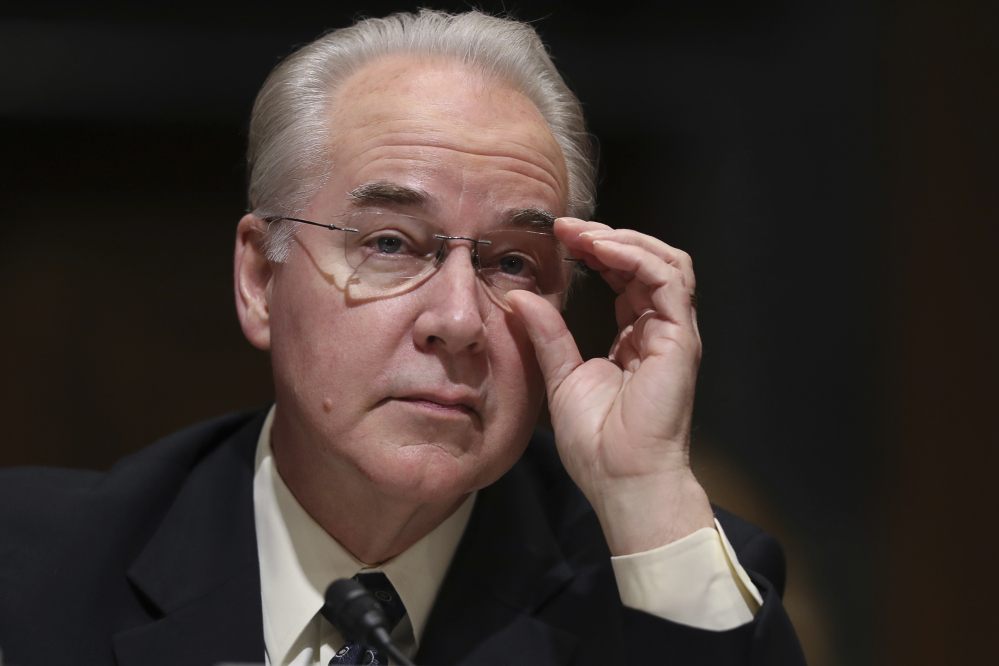Legislative attempts to repeal the Affordable Care Act appear to be dead for now, but that doesn’t mean the law that extended health coverage to 20 million Americans is out of danger.
All that’s changed is who’s spearheading the attacks. For the immediate future, the fight to dismantle Obamacare will be an inside job.
It’s well known that President Trump and his secretary of health and human services, Tom Price, are hostile to the program, and they are doing what they can to undermine its effectiveness – from cutting advertising and outreach that helps new members sign up, to creating uncertainty about whether the federal government can be counted on to continue to fund subsidies.
Not being able to predict how many people could be in the insurance pool, or how much it would cost to cover them, makes it very difficult to design an insurance product, so some companies in different parts of the country have stopped selling individual plans.
And whenever one does, the administration calls attention to it as proof that the program is collapsing under its own weight and not because of their mischief.
That’s the dynamic we’ve seen in Maine this week, with the announcement that Anthem Blue Cross Blue Shield would not sell plans on the individual market here next year.
“A stable insurance market is dependent on products that create value for consumers through the broad spreading of risk and a known set of conditions upon which rates can be developed,” Anthem spokesman Colin Manning said in a written statement. “Today, planning and pricing for ACA-compliant health plans has become increasingly difficult.”
Anthem has about 28,700 customers who would be affected, but that doesn’t mean they will lose their insurance. There are still two companies competing to sell plans on the exchange: Maine Community Health Partners, a consumer-owned cooperative, and the nonprofit Harvard Pilgrim.
But the news is still a big deal. The former Anthem customers will have to shop for new plans, and all consumers in Maine will have fewer choices. It leaves Maine one insurer away from a market with no competition at all.
Obamacare opponents are not wrong when they say there are problems with the law that need to be fixed by Congress to make coverage affordable. But the administration is doing what it can to make the situation worse so it can get the votes it needs to scrap the whole system. With the health and well-being of tens of millions of people at stake, that’s a lousy way to play politics.
Maine Sen. Susan Collins is taking a much better approach. She is part of a bipartisan group in the Senate that’s writing legislation that would stabilize the markets for next year and give Congress time to address the underlying problems.
Health insurance is expensive in this country because health care is expensive, and that’s a problem whether it’s the government or private citizens paying the bills. Hastening a collapse of the market and putting millions of lives in turmoil might win some political points, but it won’t do anything to fix what needs fixing in our health care system.
Send questions/comments to the editors.


